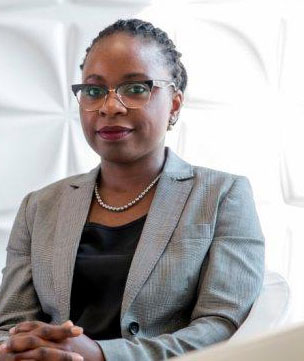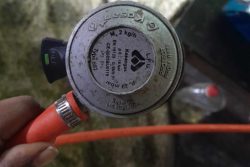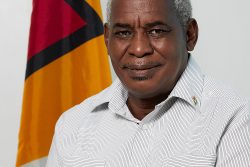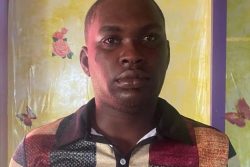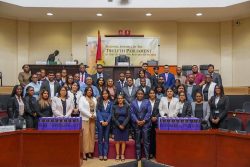Angola still ranks as the second largest oil producer in Africa, behind Nigeria. The country however, is populated by a people, many of whom, these days, stage frequent protests against economic hardships.
Turning things around lies largely in the hands of a thirty-six-year-old Finance Minister who is preoccupied with renegotiating the country’s way through its massive debt with key lenders. No one it seems, is betting on when a country once thought to be heading in the direction of being one of the more prosperous ones on the continent, will come to the end of its rocky road.
One of Angola’s current preoccupations, which has both serious economic and political implications, is with that of implementing the mandatory tough economic reforms dictated by the International Monetary Fund (IMF) under an imposing US$4.5 billion programme. Last week it was announced that Angola is in the process of commencing the partial selloff of what had once been the economy’s two biggest cash cows – SONANGOL and ENDIAMA – the state-run entities controlling its oil and gas and diamond resources, respectively.
These days, much of Angola’s newsworthiness derives from what is referred to by economic and political analysts as the ‘resource curse,’ its economy having been derailed under what analysts say has been the weight of profligate spending and corrupt practices on a grand scale.
In November, Finance Minister, Vera Esperança dos Santos Daves De Sousa, usually referred to as simply, Vera Daves, announced that the commencement of the partial disposal of the two state-run entities administering the country’s oil & gas and diamond assets was due to begin next year or the following year. There does not appear, however, to be an immediate plan for checking the rampant corruption that still obtains. Daves has said that pushing ahead with the disposal of the state-run oil and gas and diamond entities “will depend on how fast we can reorganize those companies… to make sure that with the due diligence process we can capture the interest of high-quality investors.”
It is assignments like this one that the young finance minister must successfully complete if she is to make any kind of impact in pressing ahead with the daunting task of reviving an economy that is forecast to contract for a fifth consecutive year in 2020. She is also spearheading efforts to renegotiate Angola’s debt with its main lenders and implement tough economic reforms that are part of her country’s programme with the IMF.
So abysmal has been the performance of the Angolan economy in recent years that Daves announced at a virtual forum last week that the country was arriving at what she described as an “inflection point” as it approaches what is now the certainty of zero growth next year before returning to modest expansion in the following year.
Increasingly, Angola is being cited as one of those rags to riches to economic cave-in stories brought about by the oil-related resource curse. The Angola experience has been touted and an object lesson for new kids on the oil & gas block like Guyana where the start of oil recovery coupled with considerable evidence of investor interest in the country from North America, particularly, has created a buzz of excitement.
The discovery of significant oil and gas resources offshore Guyana was almost immediately followed by intense internal discourse about how the country might circumvent the so-called resource curse though the months-long general elections-related controversy was thought to reflect, among other things, the extent to which the country’s two leading political factions are keen to secure control of the country’s oil resources.
Ironically, last week’s assessment of the state of the Angolan economy in an article published by Bloomberg asserts that Angola’s hoped-for growth, going forward, will be driven by the non-oil ‘fall back’ sectors, including farming and mining. Interestingly, the discovery and subsequent recovery of oil offshore Guyana triggered a vocal lobby for the local agriculture sector, particularly, not to be left behind in the likely excitement over the prospects of an ‘oil economy’.
The resource curse theory holds that poor countries with large endowments of natural resources, especially oil, often do not achieve sustainable economic growth on account of the fact that the sheer size of the revenues accruing from oil, fuels corruption, mismanagement, and governments that fail to invest for the future or provide for the well-being of the majority of their populations. A second critical consequence of the resource curse has been the manifestation of intense political rivalry and attendant conflict in afflicted countries as the various factions strive for the control of the state, the gateway to access to countries’ economic resources.
For its part Angola has been saddled by the weight of what has been regarded as corrupt and authoritarian government since the country secured its independence from Portugal in 1975. Contemporary studies in the manifestations of the resource course theory still cite the instance of Angola’s one-time ‘First Family’. The Dos Santos family and particularly, Isabella, the daughter of the now deceased former President, Jose Eduardo Dos Santos, reportedly used her influence as an state official to effect what one writer described as a “master class” in corruption along the natural resource value chain (NRVC) in oil and diamond-rich Angola.
A report last month indicated that up until now, Angola has sold 30 companies through a programme that runs through 2022 and that it is targeting the beginning of 2022 to start the process of the privatisation of its two biggest state-run natural resource entities, SONANGOL and ENDIAMA, for possible selling off to the private sector, possibly in 2022.
